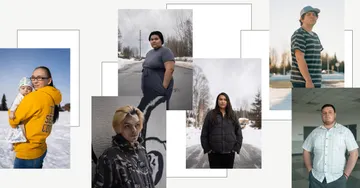In the mid-1980s, three half-brothers, Robert Hill, Alvena Jennette, and Darryl Austin, were wrongly convicted of murder and spent a combined 60 years in prison. The brothers were victims of infamous homicide detective Louis Scarcella, who is suspected of employing unreliable eyewitnesses, eliciting dubious confessions, and using other questionable tactics in an estimated 70 cases over the course of his career with the New York Police Department. Earlier this month, New York City’s comptroller Scott Stringer took a step toward remedying this injustice, agreeing to pay $17 million to the half-brothers.
What is unique about Stringer’s strategy is not the settlements themselves, but that he agreed to resolve the cases before Hill, Jennette, and their families filed a lawsuit seeking damages. (Austin died in prison.) Prelitigation settlement of a significant civil rights case is an anomaly, and Stringer’s actions have the potential to usher in a new era in litigation on behalf of victims of police and prosecutorial misconduct. Nowhere would that change be more welcome than in Chicago, where Cook County holds the inglorious honor of leading the nation in wrongful convictions.
The People’s Law Office (PLO), a storied civil rights firm in Chicago, conducted a review of city payment records from 2003 to 2012 and found that the City of Chicago had paid upwards of $63 million dollars in attorneys’ fees to 11 private law firms to defend officers accused of misconduct — including the coercion of false confessions, physical abuse, the suppression of exculpatory evidence, and perjury. The use of what the PLO calls “pinstripe patronage” was most egregious in the case of Jon Burge, the Police Commander who has been accused of using electric shock and other forms of torture in the 1970s and 1980s at the Southside police stations.
As of 2012, the city paid out almost $20 million to attorneys to defend Burge and his colleagues — even while Burge was serving time in federal prison for lying under oath about the use of torture. In many of these cases, the city eventually settled with defendants — costing the city millions while prolonging the victims’ wait for justice. Prelitigation settlement of such cases would have ensured a fair outcome for those victimized by municipal employees, while at the same time saving a financially beleaguered Chicago in litigation expenses that often reached hundreds of thousands of dollars per case.
But adopting New York’s settlement model does raise questions about transparency. If police misconduct is not broadcast in a court of law, will those at fault be held accountable, not just by the courts, but by the community victimized by officers’ actions? This is a valid concern, but the purpose of civil rights litigation is to make the victim whole while promoting social change as an ancillary benefit. Protracted litigation does nothing but further victimize those who are already scarred by police misconduct. Based on my own experience representing the wrongfully convicted in Illinois, most of my clients would take the certainty of compensation and closure over the unpredictability and emotional trauma of litigation. And as for promoting social change, years of wrongful conviction litigation in Chicago seem to have borne little fruit.
The lack of accountability for police is visible in all areas of Chicago government. While Burge was eventually fired from the Chicago Police Department and two of his conspirators were disciplined (though not terminated), that is not the norm. The Department’s purported watchdog — the Independent Police Review Authority (IPRA) — has come under fire for failing to take any disciplinary action against officers engaged in on-the-job misconduct. This is hardly surprising given that the upper echelon in the city’s police administration publicly support officers who employ illegal methods. Just last fall, Police Superintendent Garry McCarthy defended the actions of Commander Glenn Evans, currently facing charges for putting the barrel of a gun in a suspect’s mouth.
This resistance to change has persisted through hundreds of lawsuits filed by civil rights attorneys on behalf of the men, women, and children wrongfully prosecuted by the police and State’s Attorney’s Office in Cook County. It’s time to try a different approach, particularly in cases (so common in Cook County) involving “repeater” cops, and cases where the victim has already been exonerated by the courts.
In the case of the New York brothers, the city comptroller’s office conducted a risk-benefit analysis, noted the strength of the claims of the victims, and decided it was a better bet for the city to compensate those who deserved it rather than fight the case out in court and prolong justice. In doing so, Stringer has won both the moral and budgetary advantage.
Chicago — and other cities around the country — should take heed.
Alexa Van Brunt is an attorney at the Roderick and Solange MacArthur Justice Center, a Clinical Assistant Professor at Northwestern University Law School and Center, and a Public Voices Fellow with The OpEd Project.
